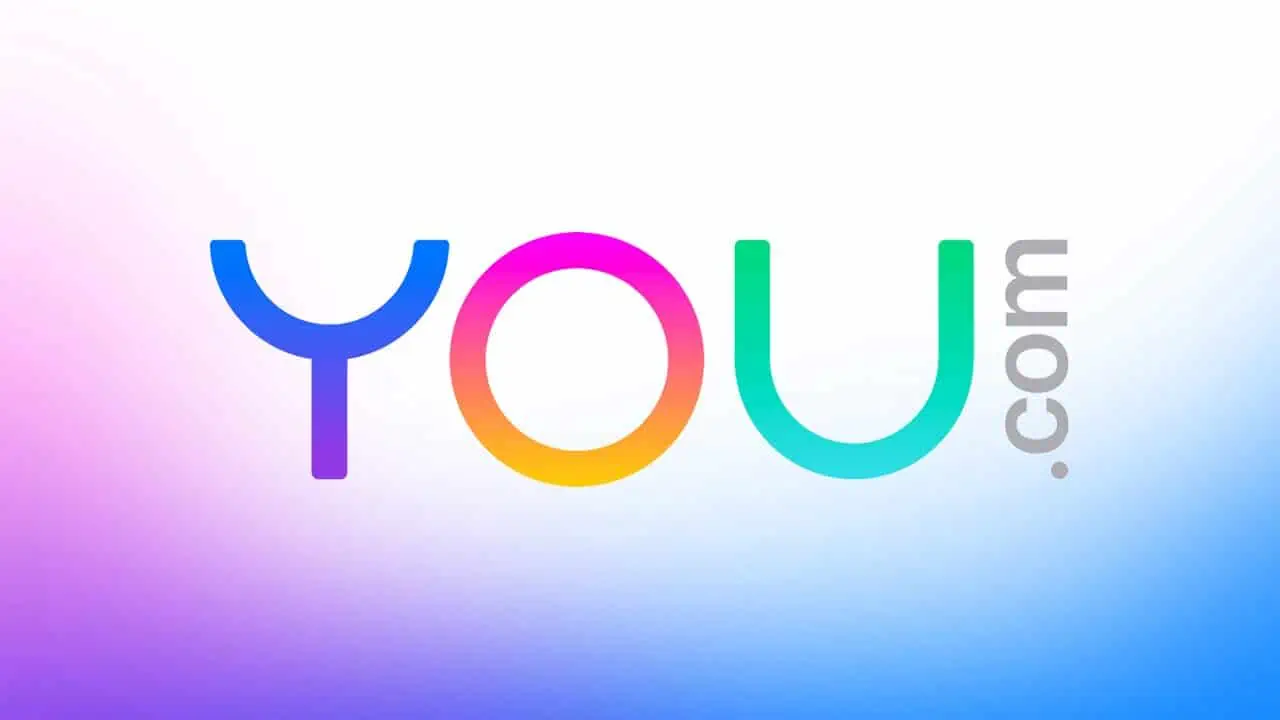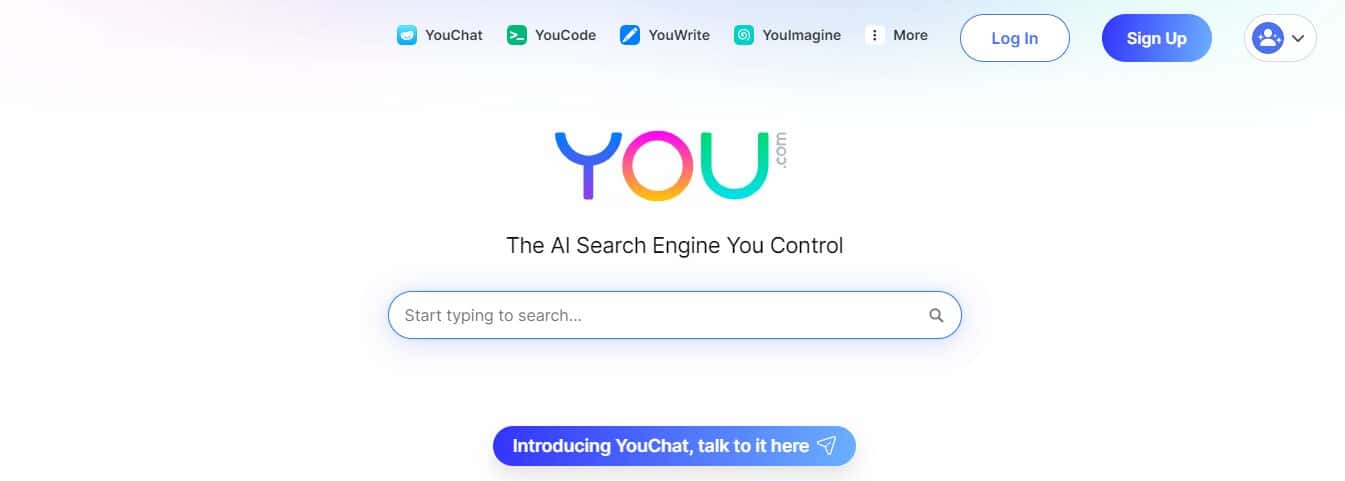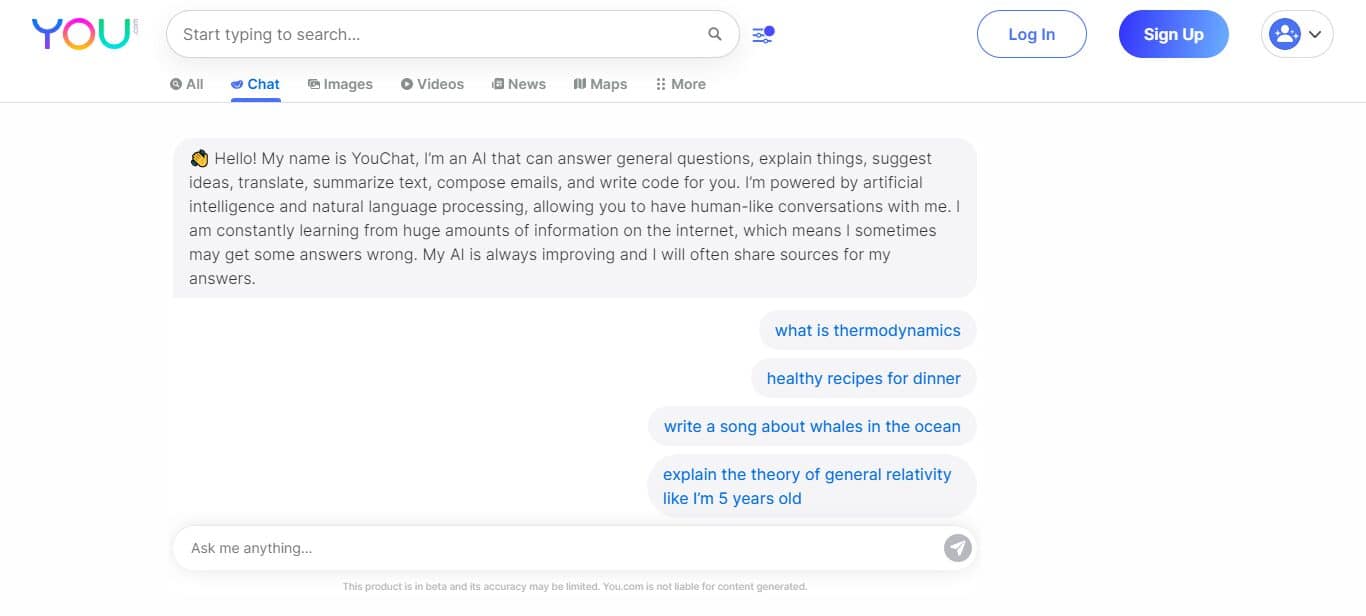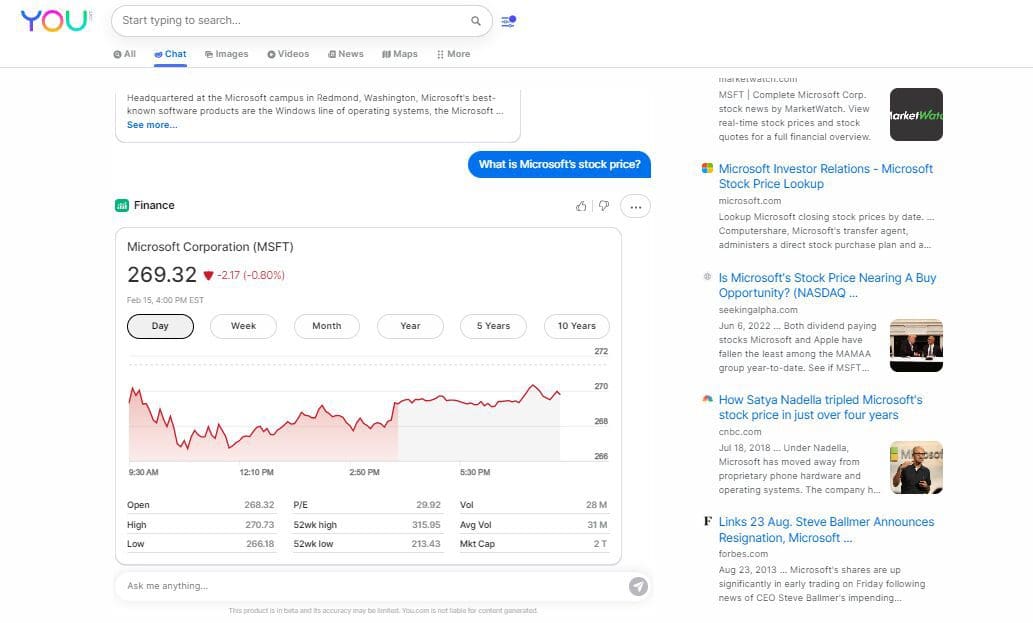You.com has been offering AI chatbot search since 2022 and it could be Microsoft, Google’s next big foe


While everyone is busy adoring the new Bing and Google Bard, a startup named You.com that has been offering the same AI-powered search capabilities since 2020 remains ignored by many. Nonetheless, the company’s YouChat AI bot could soon grow into a giant enemy that might threaten Microsoft and Google’s AI dominance in the future.
Recently, news headlines have been almost limited to Microsoft and Google. Microsoft’s unveiling of its new ChatGPT-powered Bing has taken the spotlight most of the time. Google, meanwhile, is trying to counter this by presenting Bard. Unfortunately, the AI tool’s error caused the company’s shares to drop $100 billion. This also made the news recently. Indeed, every move the two titans make creates news, especially when it comes to their fresh AI breakthroughs. However, the same interesting AI creations have been available on You.com as early as December 2022. That was even before the first rumors about Microsoft’s AI efforts for Bing spread.

You.com is a new search engine launched in 2020. AI has already been a part of it since its release to allow the processing of natural or conversational language queries. On 23rd of December 2022, the company made YouChat available, a chatbot that works just like ChatGPT and responds almost instantly. It can deliver answers in a conversational manner (and it cites links!) and even translate, suggest ideas, summarize text, compose emails, and write code.

Recently, You.com even introduced a multimodal chat search feature, allowing users to provide text and voice inputs and receive responses beyond conversational texts. This includes charts, images, numbers, and more, allowing better explanations and insights onto the user’s search queries.
You.com’s search engine and YouChat remain unknown to many, but it seems to be taking extra steps to create more exposure to the public recently. Aside from the launch of its multimodal feature, the company’s presence is getting more visibility on other platforms like Reddit and other forums lately. The add-free layout and results are also attractive characteristics of You.com right now, which is something different from everyone’s present experience on Bing and Google. In a recent interview with Tech Crunch, the company’s founder, Richard Socher, made it clear that it is one of You.com’s main highlights: to be anti-Google and free of unnecessary ads.
“Google is a monolithic, monopolistic search engine that is closed and has ultimately weaponized AI against users for the sake of serving its true purpose: advertising,” Socher told Tech Crunch. “We are building You.com as a search platform that is open and emphasizes directly serving user needs with You.com apps instead of bombarding people with ads.”
While the company has plans to monetize the platform, Socher said that You.com’s path will be far from Google and Bing and that the ads will be relevant to users’ needs.
“We don’t have to make $500 million a day. We don’t have that pressure right now as a startup. But we will think about monetization this year, and we’ll try to explore different paths,” Socher explained. “You can allow that third-party app to just sell a service, and when that’s relevant to the user, and the user wants to buy whatever that company sells, then we get a cut of that. So it’s sort of monetizing the end of the funnel rather than the beginning of the funnel, which is what ads do.”
Right now, judging from personal experience, You.com and YouChat have huge potential in this AI war. With few to zero ads and an efficient chatbot, it is a perfect alternative to ChatGPT Bing and Bard, which both remain unavailable to many around the globe. All it probably needs now is visibility and recognition. However, is it something attainable for You.com in this era now dominated by bigger and older search engine companies?
Read our disclosure page to find out how can you help MSPoweruser sustain the editorial team Read more




User forum
0 messages